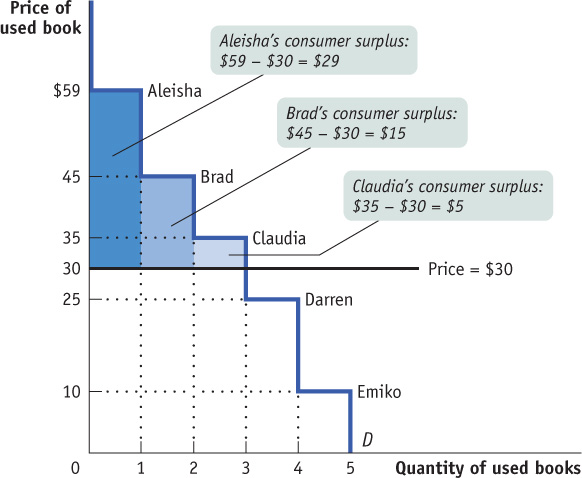
Figure4-2Consumer Surplus in the Used- Textbook Market At a price of $30, Aleisha, Brad, and Claudia each buy a used book but Darren and Emiko do not. Aleisha, Brad, and Claudia receive individual consumer surpluses equal to the difference between their willingness to pay and the price, illustrated by the areas of the shaded rectangles. Both Darren and Emiko have a willingness to pay less than $30, so they are unwilling to buy a used book in this market; they receive zero consumer surplus. The total consumer surplus is given by the entire shaded area— the sum of the individual consumer surpluses of Aleisha, Brad, and Claudia, which is equal to $29 + $15 + $5 = $49.